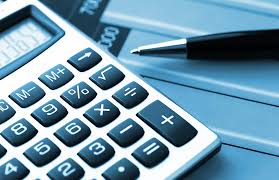7 Things to Consider Before Choosing an Accountant for Your Small Business
One of the smartest things you can do as a small business owner is choosing an accountant for your business. It goes without saying that, if you don’t have a strong financial background or know much about accounting, you shouldn’t be doing your own accounting. There are just too many problems that can arise from that attempt—both financial and legal. You don’t want to get audited by your tax authority for making simple mistakes.
In fact, we’ve stated before that it is one of the top accounting mistakes that small business owners make. So when you finally decide to get an accountant, now you have another problem: how do you choose which one is the best? That’s why today we’ll show you the 5 most important things to consider before you choose an accountant for your small business.
#1 Time in business
Although it may seem at the same time unfair and practical, the number of years that an accountant has been in business can mean success or failure.
If an accountant has a lot of experience working with small businesses and understands the unique challenges, then that’s exactly who you want.
You may get along well with a younger accountant or one with little experience, but it may be a bigger risk than you need to take.
#2 References
Another important thing to consider before choosing an accountant is how many references the accountant has.
References are important because they will inform you how well this particular accountant could help businesses similar to yours. And that’s the type of references you want—businesses with similar sizes, structures, niches or other things in common.
By talking with those references, you can get a good idea if the accountant has the experience and skills necessary to help you.
If the accountant has no references whatsoever, then you probably shouldn’t even consider him or her.
#3 Account handling—by one accountant or many?
If you are just hiring your first accountant, then you need to trust that accountant. The only way to do that is to build up that trust through months and years of interaction.
For that reason, it’s important that your account be handled by a single person, and not passed on through the accounting firm from one accountant to another.
This type of accounting carousel can cause a lot of frustration and unnecessary headaches on your part.
#4 Fees
Of course, although optimally you may want to focus on processes and other similarly significant things, we can’t forget about money.
If you can’t afford the accountant, then there’s no reason to even begin any discussions.
You need to take into consideration how the accountant is charging. Is it:
- by the hour?
- based on a fixed fee?
- based on a value-billing system?
Naturally, if your accountant charges by the hour, that means you have greater flexibility in some ways (a sort of pay-as-you-go). Whereas with a fixed fee or value-billing system, there is less room for changes.
#5 Up-to-date accounting
Having a knowledgeable accountant is very important. However, there are many ways for an accountant to be knowledgeable.
He or she can have knowledge in the standard practices and processes of the industry. Or the accountant can have knowledge of the newest idea, controversies and breakthroughs in the field.
The best type of accountant is one with both types of knowledge. The accountant that you choose to hire for your small business should be up-to-date on the current trends and developments in accounting in order to help you out the best.

Things to consider when choosing accounting software
When it comes to choosing accounting software, there are plenty of options available. However, not all accounting software packages are right for every business. It’s important to consider the needs of your business. It’s important to consider the needs of your business and factors such as budget, goals, scalability and users.
We might sell award-winning accounting software, but we’re not going to tell you that the software we sell is best for your business. In this blog, we’re simply going to cover seven things you should consider when choosing accounting software.
BUSINESS GOALS
Analysing your business and determining what you need from your new accounting software is the first and most important step when choosing a new system. Do you want a fully integrated accounting software solution that can be used across your entire business, or are you looking for a standalone accounts package? Integrated accounting software is the approach to take if you’re looking to grow your business. It can give you more control, improve efficiency and save time.
REQUIREMENTS
What do you need from your software, and what are nice to haves? Entry level software does the basics such as key financial reports, VAT, customer invoices and records. If you need features such as stock management, CRM, costing, credit management and powerful, real-time reporting tools, then you’ll need to be looking at a more advanced accounting system. Is payroll a consideration?
KNOW YOUR BUDGET
Have a clear budget in mind and be realistic about what you can afford. If budget is an issue, why not look at modular based software that you can add to as your business grows? Don’t try to buy all the applications straight away, buy the ones you need first and add to your solution gradually.
Would a cloud solution make a positive impact on the bottom line when choosing an accounting and business system over a traditional on premise offering?
You should also consider your cash flow and how you wish to pay. Would paying monthly improve your cash flow instead or would you prefer to buy upfront?

Secure Data
The market trend is to use web-based accounting software. You should also invest in such tool and not in the desktop-based ones. The heydays of desktop-based software tools are fading fast.
With the online accounting software, you can save business’ financial data on the external servers. It is safe there from any physical hazard at your end. You should know when the data is backed up and make sure the frequency is as per your needs.
Many business owners hesitate to store their financial data on external servers. However, it is actually safer there than on your own servers. The security experts look after it. They use latest technologies to secure it. It should be one of the factors to consider when selecting a software package.
Customer Support
Switching to new accounting software, however, user-friendly or advanced, is a bit uncomfortable to everyone involved. Be sure that from time to time you or the staff are going to need support from an expert. The product’s user manual is not going to have all the answers.
The level of customer support offered by the manufacturer of accounting software is one of the vital factors to consider when selecting a software package. If your staff is not happy with the software, it is going to delay the transition from the old system to new one.

3 Things to Consider When Choosing an Inventory Management System
Managing inventory requires a high level of accuracy and foresight. Any errors in inventory tracking, counting, forecasts, and data entry can cause serious issues such as depreciation, unnecessary purchases, inadequate stocks, and shipment delays which eventually lead to customer dissatisfaction. These mistakes would most likely occur if you’re still managing your inventory manually.
Inventory management software was built to help all types of companies of all sizes automate their inventory management and improve their business efficiency. Through the automation, any human errors can be reduced and even eliminated. If you are one of the thousands of business owners who are looking for automated inventory solutions, then this is the right article for you. Here are three factors to be consider when choosing inventory management software for your business.
1. Your Own Requirements
Before deciding to buy an inventory management system, you need to understand your requirements first. Find out the challenges you’re facing in managing inventory and the solutions you’re looking for.
Ask yourself, for example, like; Do I want to be able to monitor the shipment status? Do I just need to keep track of the inventory levels? Explaining your requirements thoroughly to the vendor will help you get the fixed price faster.
2. The Cost of the Software
The price of the software will depend on how complex your requirements are. You should figure out the market price of the software, so you can decide whether the price offered by the vendor is worth it or too expensive.
Before investing in inventory management software, you should make certain that your business finances are stable enough for the momentous plan. Check your budget and ask yourself; is this the right time to invest in technology?
Thanks to the presence of Cloud-based software solutions, it’s more affordable than ever for businesses to implement inventory management systems. Cloud-based inventory management software is the most suitable option for startups, SMEs, or companies with low budgets.
3. The Customization
If you have very complex specifications, then you might need to customize your inventory management system. Ask the vendor if the software can meet your specific needs and how long it will take to customize it. If you currently have an inventory management system and you need a new one with additional features, then make sure that the new system can be easily combined with the existing one.
5 Things You Should Always Mention on an Accounting Resume
The job outlook for accounting is strong and there’s a wide variety of accounting roles to fill. It’s still a competitive landscape and you want to do all you can to stand out and keep your resume out of “the pile.” There are certain skills and types of experience that will give you an edge over other applicants and improve your odds of getting the callback. Include as many of these as you can in your resume, and you’ll be on your way.
It may seem like all you need are your credentials but you’ll put yourself at a big advantage if your accounting resume includes these five things:
1. Credentials
I know, I know. But you do need to include your credentials on your accounting resume. For some positions, an accounting degree is a non-negotiable requirement. For others, a CPA or other qualification may be required.
Make sure to include any continuing education you’ve completed or even credentials outside of accounting. If you have a business credential or something else that will help you bridge the gap between spreadsheets and day-to-day operations, it will help employers see that you have diverse skills.
2. Software Expertise
The days of balancing the books by hand are long gone. Companies depend on accounting software and other digital tools to get the job done. If you’ve got experience or certification in relevant software, make sure you mention it on your resume. Knowing that you’re up to speed and won’t require training on the software is a big perk for employers, who are already spending a significant amount of time and money to bring in a new employee.
If you’ve narrowed down the employer or industry you want to work with, you may want to do some research and find out which software programs are most popular. Familiarizing yourself with these programs can set you apart from the competition.
3. Tech Comfort Level
In addition to software-specific experience and certification, your overall comfort level with technology is a good thing to highlight in your resume. Accountants are using technology more than ever. They use it to communicate within the company, work with clients, store documents, and manage their tasks.
Employers want to know that you’re comfortable with a range of tech tools as well as comfortable learning new ones as they come along. Include any relevant programs you know and use so employers can see that you have range and are capable of adapting to technology.
4. Excel
Given how much accountants rely on the tool, we can’t mention software and technology without talking about Excel. Excel is an accounting fundamental. Being skilled in Excel will not only earn you points with potential employers it will also earn the respect of others in the accounting department.
If you’re experienced or certified in specific areas of Excel, highlight this in your resume. If you haven’t got that experience, consider taking Excel training to prepare for the job, and boost your resume’s impact.
5. Business Knowledge
Did you work in a different industry before going into accounting? Do you have an undergrad degree or a minor in business? Make sure you emphasize your business skills, education, and experience in your resume. More and more, the accounting function is involved in operations and helping to make strategic decisions.
Accountants who understand business on multiple levels have a huge advantage. They can see not only the numbers side of things but the strategic, day-to-day decisions that need to be made using those numbers. Business knowledge increases your value to the company because you can more clearly communicate what the numbers really mean.